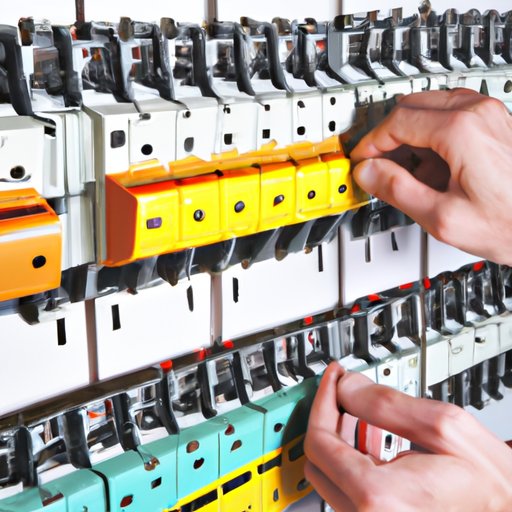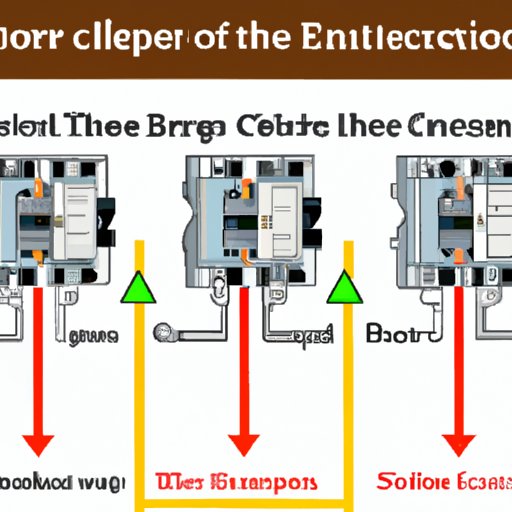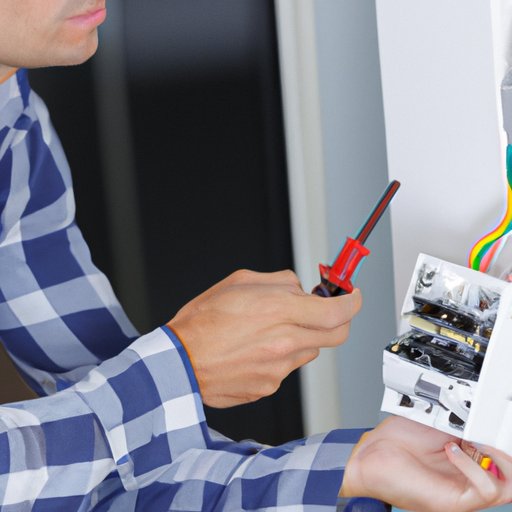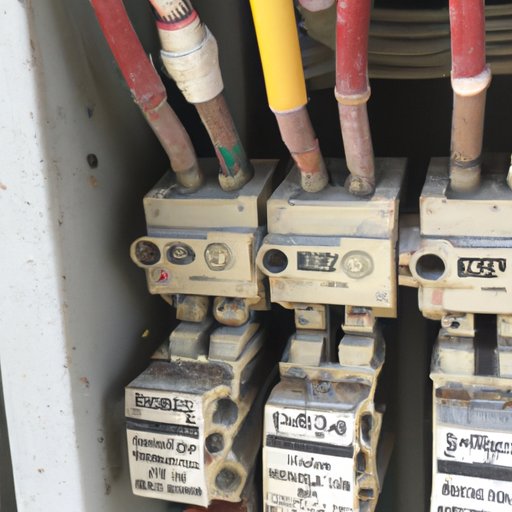Introduction
Circuit breakers are an essential component of any electrical system. They provide protection against power surges and help ensure the safety of both people and property. But what happens when a circuit breaker trips? This article will explore why circuit breakers trip and discuss the benefits they provide.
Analyzing the Different Reasons Why Circuit Breakers Trip
When an electrical circuit becomes overloaded or experiences a short circuit or ground fault, the circuit breaker will trip and shut off the flow of electricity. Overloading an electrical circuit occurs when more electricity is drawn than the circuit can handle. This is usually due to too many appliances being plugged into a single outlet or circuit. A short circuit is caused when two wires with different voltages touch each other, while a ground fault occurs when a hot wire comes in contact with the ground or a metal surface. When these events occur, the circuit breaker responds by tripping and cutting off the flow of electricity.
Exploring the Benefits of Tripping a Circuit Breaker
Tripping a circuit breaker serves several important functions. First, it prevents damage to electrical systems from occurring. By detecting faulty wiring or overloading, the circuit breaker will trip before any serious damage can be done. Second, tripping a circuit breaker helps reduce the risk of fire. Since it will cut off the flow of electricity, it prevents sparks and fires from occurring. Finally, tripping a circuit breaker ensures safety for both people and property. It prevents electric shock and other potentially dangerous situations from occurring.

Examining How Circuit Breakers Protect Electrical Systems
Circuit breakers are designed to detect overloads, short circuits, and ground faults. When an overload occurs, the circuit breaker will trip and shut off the flow of electricity. This prevents further damage from occurring and allows time for repairs to be made. Short circuits and ground faults also cause the circuit breaker to trip and shut off the electricity. This helps prevent electric shock and other dangerous situations from occurring.

Understanding the Various Types of Circuit Breakers and When They Trip
There are several different types of circuit breakers available. Standard breakers are the most common type used in homes and businesses. These are designed to detect and trip in response to overloads, short circuits, and ground faults. Arc-fault circuit interrupters (AFCIs) are designed to detect arcing faults and trip in response to them. Ground-fault circuit interrupters (GFCIs) are designed to detect ground faults and trip in response to them.
Investigating Potential Causes of Frequent Circuit Breaker Tripping
Frequent circuit breaker tripping can be caused by a variety of factors. Loose or damaged wiring is often the culprit, as this can cause the circuit breaker to trip due to an overload or short circuit. High electrical demand can also cause a circuit breaker to trip, as it may not be able to handle the amount of power being drawn. Poorly sized or old circuit breakers can also cause frequent trips, as they may not be able to handle the amount of current being drawn.

Showcasing How to Reset a Tripped Circuit Breaker
If a circuit breaker has tripped, it’s important to take the proper steps to reset it. The first step is to locate and identify the tripped breaker. This can usually be done by looking at the breaker panel and finding the breaker that has tripped. Once the breaker has been identified, it can be reset by pushing the switch back to the “on” position. After the breaker has been reset, it’s important to test the circuit to make sure it’s working properly. If the breaker continues to trip, further action may need to be taken.
Conclusion
In conclusion, circuit breakers are an essential component of any electrical system. They provide protection against power surges and help ensure the safety of both people and property. This article explored why circuit breakers trip and discussed the benefits they provide. It examined how circuit breakers protect electrical systems and what types of circuit breakers are available. It also investigated potential causes of frequent circuit breaker tripping and showcased how to reset a tripped breaker. By understanding why circuit breakers trip and how to reset them, you can ensure the safety of your home or business.
(Note: Is this article not meeting your expectations? Do you have knowledge or insights to share? Unlock new opportunities and expand your reach by joining our authors team. Click Registration to join us and share your expertise with our readers.)
